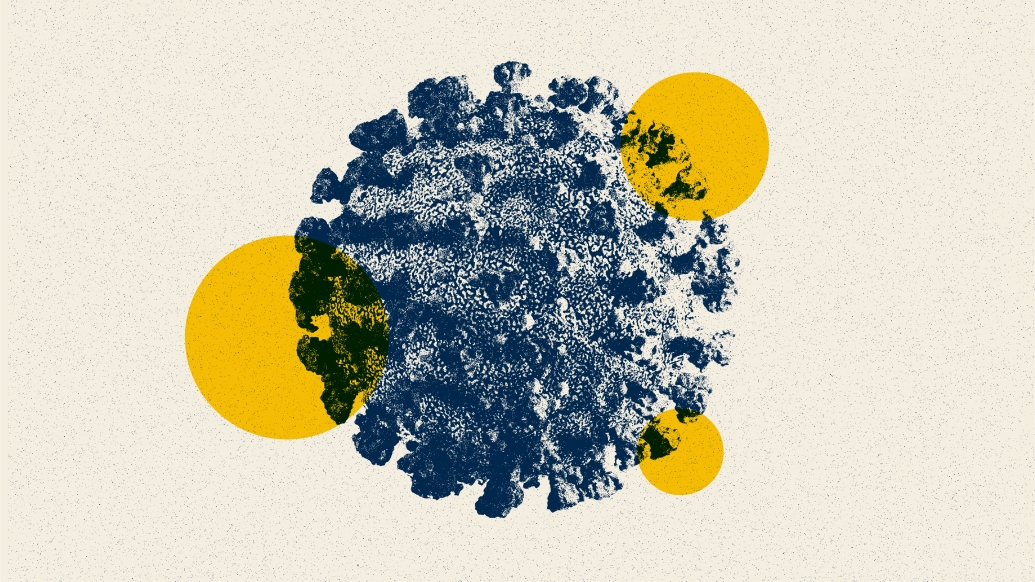Adults with sickle cell disease around half as likely to have gotten initial SARS-CoV-2 doses as people without sickle cell disease
1:18 PM
Author |

Despite the fact that people with sickle cell disease have a much higher risk of serious illness or death if they develop COVID-19, a study shows they’re also much less likely than those without sickle cell disease to have gotten vaccinated against coronavirus.
Completion of the initial COVID-19 vaccination series was nearly two times lower for adults with sickle cell disease as others their age, the analysis of data in Michigan shows.
In in teens and children over 5, who overall have lower rates of COVID-19 vaccination, those with sickle cell disease were far less likely than other young people to have gotten their doses by summer 2022, the analysis shows.
SEE ALSO: Most Children with Sickle Cell Anemia Not Receiving Key Medication
A team from Michigan Medicine, the University of Michigan’s academic medical center, published the findings in JAMA Network Open together with colleagues from the Michigan Department of Health and Human Services and U-M School of Public Health.
The team behind the study runs the Michigan Sickle Cell Data Collection Program, part of the national Sickle Cell Data Collection Program funded by the Centers for Disease Control and Prevention.
This population is chronically underserved in healthcare and society, emphasizing the importance of increasing the accessibility and acceptability of these vaccines." Sarah Reeves, Ph.D.
To produce the findings, the team linked individual-level data from the statewide sickle cell data collection program and immunization registry. In all, they had records from 3,424 people over age 5 with sickle cell disease, and 9.4 million Michiganders over age 5.
In all, 61% of the Michiganders without sickle cell disease, but only 33.5% of those with sickle cell disease, had gotten at least the primary dose or doses of Pfizer, Moderna or Johnson & Johnson COVID-19 vaccines by August 2022.
The very highest-risk group, those over 65, had the highest vaccination rates, at 74% for those with sickle cell disease and 87% for the general population.
However, there are only 110 people with sickle cell disease in this age group due to a combination of early mortality and less comprehensive data for this age group.
In adults age 18 to 64, the difference between the two groups was about the same as the overall average.
But in children and teens with sickle cell disease, who the researchers had previously shown have a higher rate of hospitalization and death if they developed COVID-19 compared to young people without sickle cell disease, vaccination rates were much lower.
Only 17% of children age 5 to 11 with sickle cell disease, and 31% of their counterparts age 12 to 17, had gotten even a primary series of COVID-19 vaccine.
That’s compared with 25% and 41% of the general Michigan population in these age groups.
SEE ALSO: Most babies with sickle cell disease face double disadvantage
"It is essential to develop targeted interventions to increase COVID-19 vaccination among people with sickle cell disease," said MiSCDC principal investigator Sarah Reeves, Ph.D.
"This population is chronically underserved in healthcare and society, emphasizing the importance of increasing the accessibility and acceptability of these vaccines."
The lead author of the study is Hannah Peng, M.P.H., a senior statistician on the MiSCDC team. Both she and Reeves are members of the Susan B. Meister Child Health Evaluation and Research (CHEAR) Center in the U-M Department of Pediatrics. Reeves and co-authors Kevin Dombkowski, Dr.P.H., of Pediatrics and Melissa Creary, Ph.D., of U-M SPH, are members of the U-M Institute for Healthcare Policy and Innovation.
The study was funded by the Centers for Disease Control and Prevention
Paper cited: “COVID-19 Immunization Coverage Among People With Sickle Cell Disease,” JAMA Network Open. DOI: 10.1001/jamanetworkopen.2023.51618
Sign up for Health Lab newsletters today. Get medical tips from top experts and learn about new scientific discoveries every week by subscribing to Health Lab’s two newsletters, Health & Wellness and Research & Innovation.
Sign up for the Health Lab Podcast: Add us on Spotify, Apple Podcasts or wherever you get you listen to your favorite shows.

Explore a variety of health care news & stories by visiting the Health Lab home page for more articles.

Department of Communication at Michigan Medicine
Want top health & research news weekly? Sign up for Health Lab’s newsletters today!





